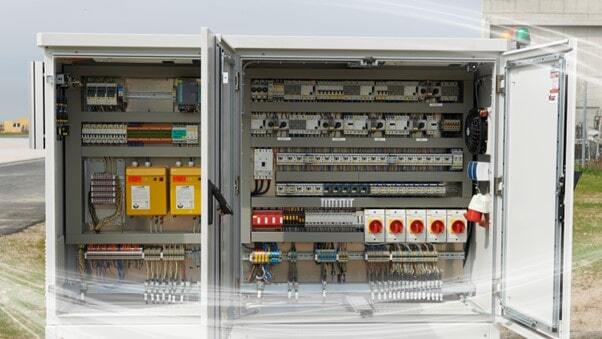
Plastic vs Metal Electrical Enclosures: Which is Right for You?
Choosing the right material for your electrical enclosure needs may feel daunting, but it doesn’t need to be. Of course, it’s important to select the right option that fits your requirements to keep your systems running smoothly; the most prominent of which are plastic and metal enclosures. Each option provides its own benefits and qualities. With this in mind, here’s a guide on which enclosure is best for you.
Plastic Electrical Enclosures
Plastic electrical enclosures are made from a variety of thermoplastic materials such as polycarbonate, ABS, PVC, and fiberglass. These electrical enclosures are typically the more cost-effective option, offering a strong level of protection at a far lower cost than the metal equivalent. They are lightweight and are versatile, being easily moulded into various shapes and sizes. Choosing a plastic electrical enclosure is also easier to handle, resulting in a simpler (and potentially faster) installation.
The enclosure’s plastic construction is non-conductive and resists most kinds of corrosion (including rust) or chemicals, which may be useful when it’s exposed to the elements or placed in difficult environments such as within the chemical industry. Sub-par plastic types including PVC can result in environmental damage, so make sure your enclosure only uses quality plastic that can meet your operational requirements.
Some electronics might need to send and receive radio signals, and certain electrical enclosures may block or inhibit this in some way. Plastic enclosures let EMF and RFI waves pass through with ease, while metal enclosures often block these signals – this alone could be a significant factor in which enclosure will serve the right purpose for you.
Metal Electrical Enclosures
Metal electrical enclosures are often more costly, but some metals such as aluminium allow for lightweight, affordable construction. These containers are generally more durable than plastic, making them more suitable for high-impact environments. With high tensile strength and strong resistance to temperature, metal enclosures are especially useful if the enclosure is exposed to the sun or heat.
Though metal enclosures can resist corrosion and chemicals, this might require special additional treatments that don’t always come as standard. Aluminium is naturally resistant to corrosion and rust – which could make it a good alternative to plastic for outdoor electrical enclosures.
Metal electrical enclosures may resist some RFI and EMF signals, which can limit its effectiveness with specific equipment. On the other hand, this may be a requirement depending on what is within the enclosure. For example, you may need EMC shielding and require a specific enclosure to that end if your electrical equipment might be vulnerable to certain radio waves.
The enclosure you select ultimately depends upon your priorities – including budget, whether your electronics need to receive radio signals, or whether they must withstand extreme conditions. At Rittal, we specialise in providing multiple types of enclosures for usage in a wide variety of instances. Our wealth of expertise will help guide you towards the perfect enclosure for your needs. Simply contact us for more information.
Do you want to gain more expert insights before making an informed decision for your outdoor enclosures? Download our e-book now and take the first step towards achieving unparalleled protection and performance. Your outdoor installations deserve the best, and we're here to guide you every step of the way!



